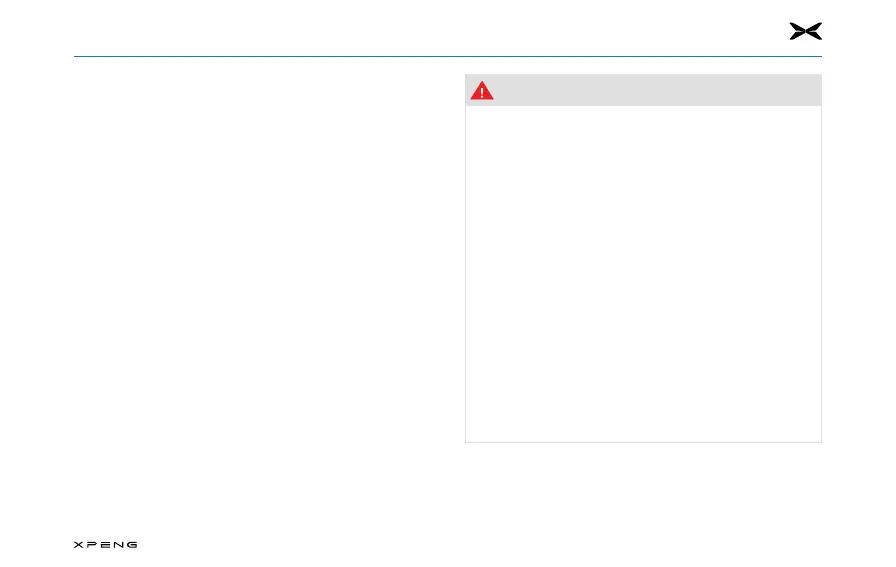9. Maintenance
198
Seasonal Tire TypesSeasonal Tire Types
Summer tiresSummer tires
Summer tires are suitable for extremely dry or wet roads, but
not for winter. Winter tires are recommended when driving in
cold weather or on icy roads.
All-season TiresAll-season Tires
These tires are designed to provide sufficient traction in
all seasons of the year, but may not provide the traction
comparable to winter tires on icy and snowy roads. "ALL
SEASON" and/or "M+S" (mud and snow) markings are visible
on the tire walls of all-season tires.
Winter tiresWinter tires
Winter tires improve traction on icy and snowy roads. When
fitting winter tires, always fit a set of four tires at the same time
and all four wheels must have the same size, brand, structure,
and tread pattern of winter tires, contact your local authorized
service center for advice on winter tires.
When driving a vehicle fitted with winter tires, you may
experience increased road noise, reduced tread life, and
reduced traction on dry roads.
Warning
●
Do not drive the vehicle if the tires are damaged,
excessively worn, or have incorrect air pressure. Check
the tires regularly for wear and tear to make sure
there are no cuts or bulges.
●
Upon a tire replacement or repair, check the wheel
alignment and perform the wheel dynamic balance
again.
●
If you find uneven and excessive tire wear, visit your
local authorized service center as soon as possible to
check wheel balancing and wheel alignment.
●
Insufficient tire pressure is the most common cause
of tire failure and can cause overheating, cracking,
tread delaminating, or tire breakage that may lead to
unexpected accident ( e.g. loss control of the vehicle)
and injury.
●
It will also shorten the endurance mileage of the
vehicle as well as the tread life of the tires.
●
Do not use any tire sealant (except the type provided
in the vehicle's tire repair kit). Other types of tire
sealants may cause failure to the tire pressure sensor.
